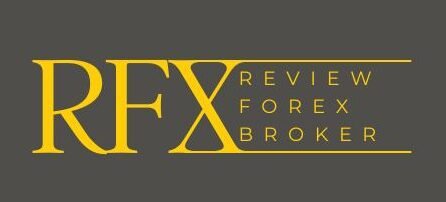The forex market is the largest and most liquid financial market in the world, offering countless opportunities for traders to profit from currency fluctuations. But have you ever wondered how forex brokers make money? Understanding the business model of brokers is crucial, as it affects your trading costs and overall profitability. In this blog, we will break down the main ways forex brokers generate revenue—spreads, commissions, and hidden fees—so that you can make more informed decisions as a trader.
1. Spreads: The Core Revenue Source
The spread is the difference between the bid price (the price at which you can sell a currency) and the ask price (the price at which you can buy a currency). Brokers charge this difference as a fee for facilitating trades, and it’s one of the most transparent ways they make money.
Types of Spreads
- Fixed Spreads: These do not change, regardless of market volatility. While this provides stability, fixed spreads are often wider, meaning you pay more compared to variable spreads.
- Variable (Floating) Spreads: These fluctuate based on market conditions. During periods of high liquidity (like major economic announcements), spreads may narrow, offering lower trading costs. However, during volatile periods, spreads can widen, increasing your costs.
How It Affects Traders
- Example: If a broker quotes a EUR/USD bid price of 1.1000 and an ask price of 1.1002, the spread is 2 pips. You pay this 2-pip spread when entering and exiting the trade.
- Impact: Wider spreads mean higher trading costs, particularly for scalpers and high-frequency traders. Conversely, tighter spreads can help reduce costs for day traders or long-term investors.
2. Commissions: A Direct Trading Fee
Some brokers charge commissions on trades in addition to, or instead of, spreads. These commissions are usually based on the trade size or volume and are most commonly seen with brokers offering ECN (Electronic Communication Network) or STP (Straight Through Processing) accounts, which typically feature lower spreads.
How Commissions Work
- Example: A broker might charge a commission of $5 per standard lot traded (100,000 units of currency). If you trade 1 standard lot of EUR/USD, you would pay $5 to open the trade and another $5 to close it, totaling $10.
- Impact: While commissions may seem like an added cost, brokers that charge commissions often offer lower spreads. This can benefit traders who execute large or frequent trades, as the total cost of trading can be lower than with spread-only brokers.
3. Hidden Fees: What You Might Not See at First Glance
In addition to spreads and commissions, some brokers also charge a variety of hidden fees that can eat into your profits if you’re not careful. These fees are not always advertised upfront, so it’s essential to read the fine print.
Common Hidden Fees
- Swap Fees (Overnight Financing): If you hold a position overnight, you may be charged (or credited) a swap fee, which is based on the interest rate differential between the currencies you’re trading.
- Example: If you’re long on a currency with a higher interest rate than the one you’re shorting, you may earn a small amount. Conversely, if you’re holding the lower interest rate currency, you’ll pay the swap fee.
- Withdrawal Fees: Some brokers charge fees when you withdraw funds from your trading account. These fees can be fixed or a percentage of the withdrawal amount.
- Example: A broker may charge $30 for each withdrawal, or 1% of the amount withdrawn.
- Inactivity Fees: If you leave your account dormant for a specific period (usually 3-12 months), brokers may impose an inactivity fee to maintain your account.
- Example: If your account remains inactive for six months, you might be charged $10 per month until activity resumes or your balance is depleted.
- Conversion Fees: If you deposit or withdraw money in a currency different from your account’s base currency, some brokers charge a conversion fee.
- Example: Depositing in GBP to a USD-based account could incur a conversion fee of up to 2%.
How These Fees Affect Traders
- Hidden fees can significantly impact profitability, especially for long-term traders who hold positions overnight or investors who may not trade frequently. It’s essential to consider these costs when selecting a broker, as they can erode gains over time.
4. Dealing Desk vs. Non-Dealing Desk Brokers: A Revenue Model Comparison
The way brokers handle your trades can also impact how they make money and what kind of fees you’ll face.
- Dealing Desk Brokers (Market Makers): These brokers act as the counterparty to your trades. When you buy a currency, the broker sells it to you. Market makers profit from the spread and may hedge their risk by trading against you. While some traders are wary of this conflict of interest, many market makers offer fixed spreads and more predictable trading conditions.
- Non-Dealing Desk Brokers (ECN/STP): These brokers connect traders directly to the interbank market or other liquidity providers. They charge commissions or very low spreads, making money solely from facilitating trades. This model often offers tighter spreads but can result in higher overall costs due to commissions.
5. The Importance of Transparency
When choosing a forex broker, transparency about how they make money should be a top priority. Reputable brokers clearly disclose their fees, spreads, and commission structures. It’s essential to:
- Read the Terms & Conditions: Before signing up, thoroughly review the broker’s fee schedule.
- Ask About Fees: If anything seems unclear, don’t hesitate to contact customer service for clarification.
- Test with a Demo Account: Many brokers offer demo accounts where you can experience the trading conditions without risking real money. This allows you to gauge how spreads, commissions, and other fees might impact your trading.
Conclusion
Forex brokers primarily make money through spreads, commissions, and, in some cases, hidden fees. Understanding these costs is essential for anyone trading in the forex market, as they directly affect your bottom line. While spreads and commissions are relatively straightforward, hidden fees such as withdrawal costs, inactivity fees, and swap charges can catch traders off guard.
To make the most of your trading experience, choose a broker with a transparent fee structure, competitive spreads, and clear policies on commissions and additional costs. By doing your research and staying informed, you can avoid excessive fees and focus on developing a successful trading strategy.

